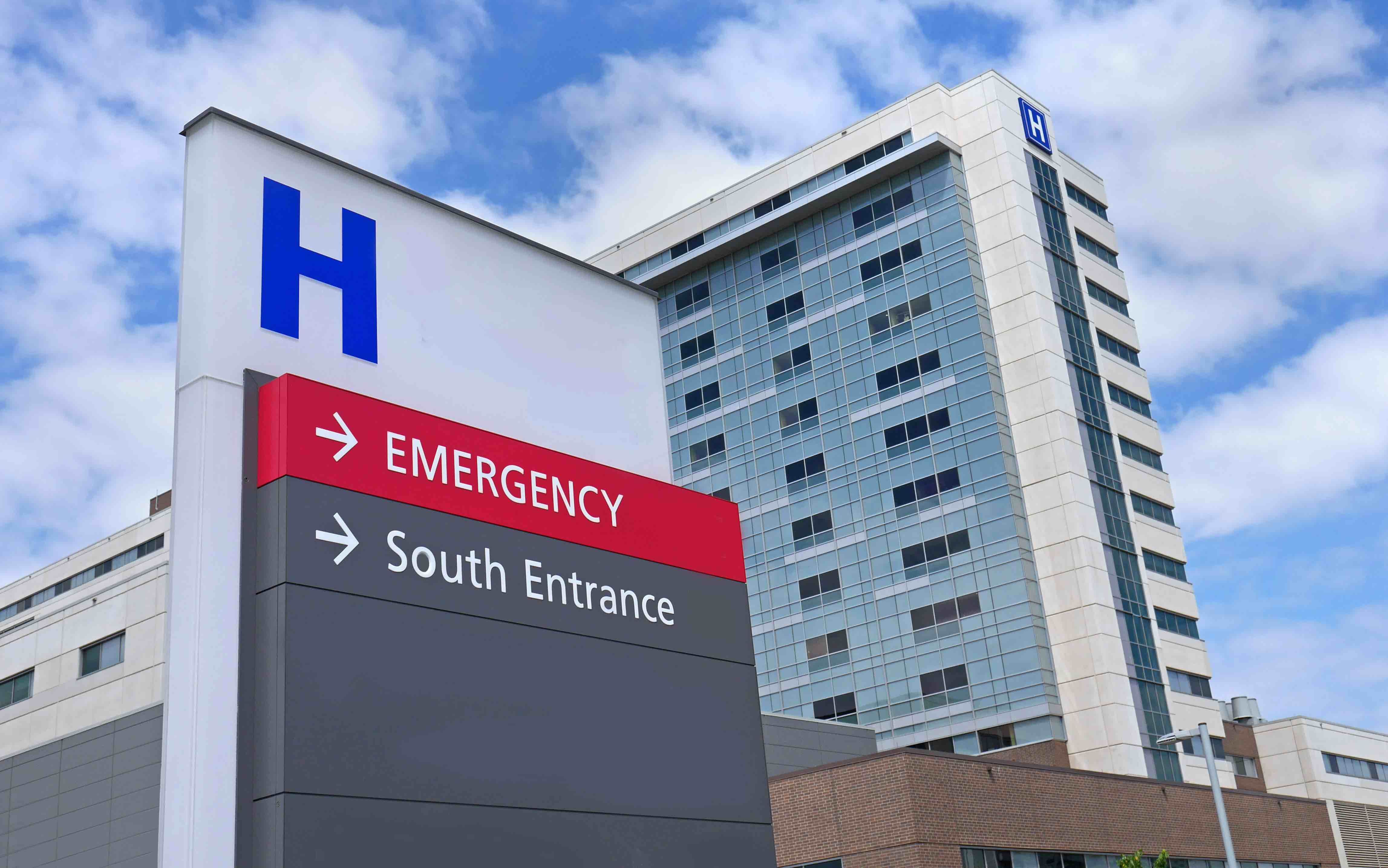- Center on Health Equity & Access
- Clinical
- Health Care Cost
- Health Care Delivery
- Insurance
- Policy
- Technology
- Value-Based Care
CMS' 340B Repayment Proposal May Harm Vulnerable Hospitals, Reward Those With Higher Revenues
The 340B hospitals not receiving an offsetting lump-sum payment from CMS following 2018-2022 cuts later ruled unlawful are disproportionately rural, publicly owned, and nonacademic, according to a new study.
Hospitals in the 340B Drug Pricing Program that administer more high-cost drugs stand to benefit more from CMS’ plan to repay 340B hospitals a total of $9 billion in forgone reimbursements from 2018-2022, according to a new study. The findings, published in JAMA Health Forum, raise equity concerns, because hospitals not receiving an offsetting lump-sum payment are disproportionately rural, publicly owned, and nonacademic.1
Hospital | Image credit: Spiroview Inc - stock.adobe.com

The 340B program entitles qualifying hospitals and federally supported safety-net clinics to buy discounted drugs from manufacturers while billing insurers at typical rates, with the savings intended to fund safety-net care, free services for uninsured patients, and other costs to boost care quality. In 2018, CMS implemented substantial cuts to Part B drug reimbursements for 340B hospitals, but those cuts were found unlawful by the Supreme Court in 2022.1,2
In 2023, CMS proposed a lump-sum payment totaling approximately $9 billion to 340B hospitals who were subject to the reduced reimbursements.3 At the time, 340B providers had already received $1.5 billion following processed or reprocessed 340B drug claims for 2022, but certain Outpatient Prospective Payment System (OPPS) 340B providers had received $10.5 billion less than they should have from 2018 to the third quarter of 2022, leaving $9 billion still owed.
Due to the budget neutrality system in the OPPS, $7.8 billion of cuts to nondrug reimbursements must be made to offset the proposed lump-sum repayment, meaning hospitals that administer large quantities of high-cost drugs will benefit, while others may be subject to a net loss in Medicare reimbursement.1
Sayeh Nikpay, PhD, MPH, of University of Minnesota School of Public Health

To characterize hospitals that will benefit from the proposed repayments, the study’s author, Sayeh Nikpay, PhD, MPH, associate professor at the University of Minnesota School of Public Health, used publicly available data to link CMS lump-sum payment estimates to Hospital Cost Reports and HRSA Office of Pharmacy Affairs data to identify OPPS hospitals that participated in the 340B program for a minimum of 1 year when Part B reimbursement cuts were in effect between 2018 and 2022.
A total of 1673 OPPS 340B hospitals were included in the study, and 1325 (79%) received payment, with a median payment of $1.8 (range, 4.0-17.0) million. To calculate each hospital's nondrug Part B reimbursement, lump sum reimbursements were adjusted to represent the payments hospitals would have received, then deducted from total Part B reimbursements over the same period. This determined the importance of cuts to nondrug reimbursements for each hospital.
The hospital characteristics of interest in the study were net operating revenue; the burden of uncompensated care such as charity care and bad debt costs as a share of net operating revenue; total profit margin; rurality; public ownership; and teaching status. Nikpay explored the associations between payments and uncompensated care burden, payments and total profit margins, and payments with the nondrug share of Part B reimbursement.
Hospitals receiving payment had higher mean operating revenues ($2.34 billion vs $1.22 billion), were less likely to be classified as rural (24.8% vs 56.6%), and were less likely to be publicly owned (20.2% vs 28.7%). Additionally, teaching hospitals were more likely to receive payment vs nonteaching hospitals (56.2% vs 20.4%).
The nondrug proportion of overall Part B reimbursements was negatively correlated with repayment as a proportion of operating revenue. While there was not a significant difference in in uncompensated care burden and operating margin by expected payment status, each percentage point increase in repayments as a proportion of operating revenue was associated with a 2.1–percentage point decrease in uncompensated care burden. Each percentage point increase was also associated with a 2.6–percentage point increase in operating margins.
“One-fifth of OPPS 340B hospitals are not expected to receive a lump sum payment under CMS’s remedy for 340B-specific cuts to drug reimbursement. Disproportionately rural, publicly owned, and nonacademic hospitals will face cuts to nondrug Medicare Part B reimbursement without an offsetting lump sum repayment,” Nikpay wrote. “Hospitals expected to receive smaller repayments receive proportionally more Medicare Part B reimbursement for nondrug services and are less financially stable than those with larger repayments.”
While the study was limited by its reliance on administrative data that were not subject to generally accepted accounting principles, the findings suggest concerning inequities potentially impacting the most vulnerable hospitals.
“Overall, these data suggest that the CMS repayment proposal may unintentionally harm vulnerable 340B hospitals while rewarding less vulnerable ones,” Nikpay concluded.
References
1. Nikpay S. Characteristics of 340B hospitals receiving Medicare Part B repayments. JAMA Health Forum. Published online April 26, 2024. doi:10.1001/jamahealthforum.2023.5397
2. Joszt L. Supreme court unanimously rules in favor of hospitals in 340B decision. The American Journal of Managed Care®. June 15, 2022. Accessed April 26, 2024. https://www.ajmc.com/view/supreme-court-unanimously-rules-in-favor-of-hospitals-in-340b-decision
3. Joszt L. CMS proposes $9 billion lump-sum repayment to 340B hospitals. The American Journal of Managed Care. July 10, 2023. Accessed April 26, 2024. https://www.ajmc.com/view/cms-proposes-9-billion-lump-sum-repayment-to-340b-hospitals
